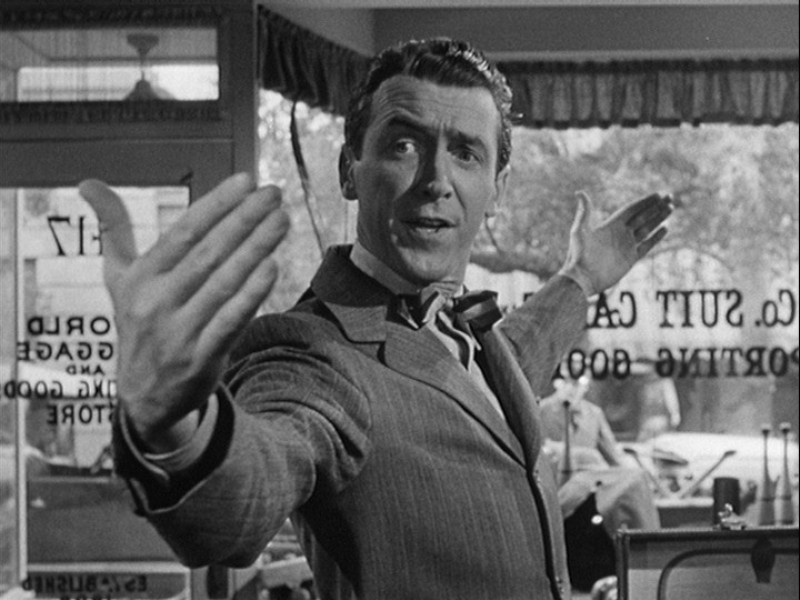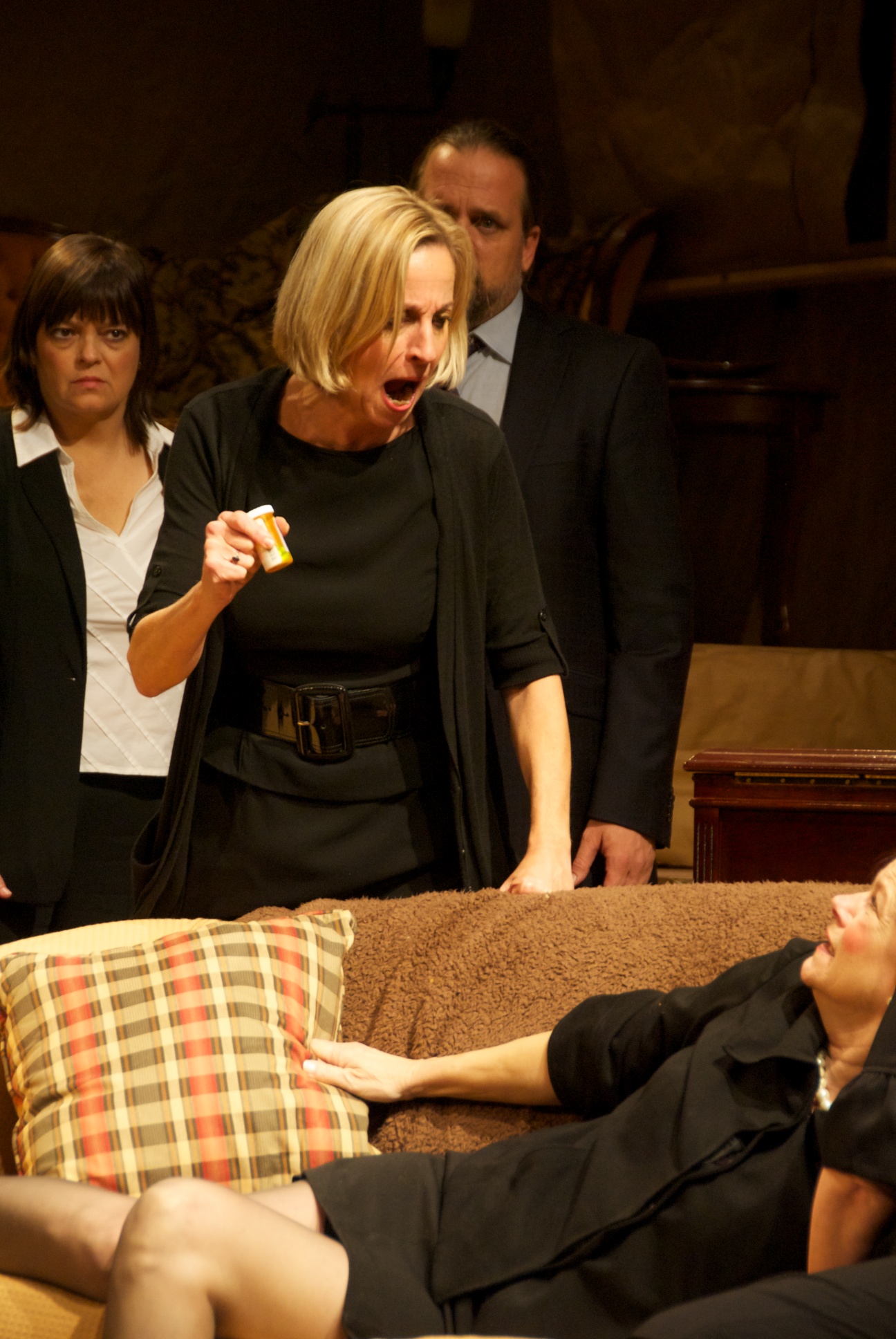Jasper loves back-talk -- and talk back sessions, as well, and Trustus Theatre is kicking off its thirtieth anniversary season with Christopher Durang’s hilarious “Vanya and Sonia and Masha and Spike,” winner of the 2012 Tony Award for Best Play, with an intriguing talk back session scheduled the second weekend of the performance. The show runs through September 27th, with the first audience talk-back of the season following the matinee on September 21st with guest respondent Jemme Stewart who will be discussing the mental health of the stage family, and helping us explore their family dynamics.
Co-founder of Upstream: A Center for Mindfulness Practice and Holistic Mental Health, Jemme has been contributing to the field of mental health for over 40 years. She obtained her Masters of Nursing Science In Psychiatric Nursing from the University of South Carolina and after ten years of working in a local psychiatrist office, she founded Carolina Psychotherapy Center in 1981. Jemme, along with co-founder Dr. Hilda White, sees the creation of Upstream as the perfect opportunity to bring a very positive and research-based skill set to a wide range of people in South Carolina. Jemme’s interest in founding Upstream with Dr. White was influenced by her growing awareness that MBSR skills are powerful practices to use as an adjunct to those in therapy, as well as all persons interested in stress management.
The seven-show Mainstage season will also include the return of last season’s sell-out family friendly show, “A Christmas Carol” and two musicals: an update of the hit 70s’ musical “Godspell,” and the award-winning “Dreamgirls.” The Mainstage will also feature two dramas: the first part of a three-part trilogy, “In the Red and Brown Water,” by the young Tarell Alvin McCraney; and “Other Desert Cities,” by Jon Robin Baitz. The season will conclude with the 2014 Trustus New Play winner, “BigCity.”
For each production, one performance will feature a post-show talk-backs with experts in subjects related to the productions, giving audience members the chance to discuss their reactions to each show and ask questions about its content.
There's more ...
In addition, Trustus will present four plays at its Richard and Debbie Cohn Side Door Theatre, the annual Vista Queen Pageant and Henderson Bros. Burlesque, and several special events.
MARK YOUR CALENDARS FOR THE FOLLOWING DATES:
“Vanya and Sonia and Masha and Spike,” through Sept. 27, 2014. By Christopher Durang, directed by Jim O’Connor, with talk-back September 21st. Winner of the 2013 Tony Award for Best Play, 2013 Drama Desk Award for Best Play and 2013 Outer Critic’s Award for Best New Broadway Play.
“A Christmas Carol,” Nov. 21–Dec. 20, 2014. Based on the novel by Charles Dickens, A new adaptation by Patrick Barlow, directed by Chad Henderson, with talk-back December 14th.
“In the Red and Brown Water,” Jan. 23–Feb. 7, 2015. By Tarell Alvin McCraney and directed by Chad Henderson, with talk-back February 1st.
“Godspell,” March 27–Apr. 11, 2015. Based on the gospel according to St. Matthew with music and lyrics by Stephen Sachwartz and book by John-Michael Tebelak, directed by Dewey Scott Wiley, with talk-back March 29th. Nominated for the 1971 Tony Award for Best Original Score, 1971 Drama Desk Award for Most Promising Composer and 1971 Drama Desk Award for Most Promising Lyricist.
“Other Desert Cities,” May 8–23, 2015. By Jon Robin Baitz, directed by Jim Thigpen, with talk-back May 10th. Nominated for the 2012 Tony Award for Best Play and 2012 Pulitzer Prize Finalist for Drama.
“Dreamgirls,” June 26–Aug. 1, 2015. Book and lyrics by Tom Eyen and music by Henry Krieger, directed by Terrance Henderson, with talk-back July 26th. Winner of the 1982 Drama Desk Award for Best Book, 1982 Tony Award for Best Book and 1983 Grammy Award for Best Cast Show Album.
“Big City,” Aug 14 –22, 2015. By Barbara Blumenthal-Ehrlich, winner of the 2014 Trustus New Play Festival. Talk-back TBA
The Richard and Debbie Cohn Side Door Theatre season includes:
”The Other Place,” Oct 17–Nov 1, 2014. By Sharr White, directed by Jim O’Connor with talk-back October 19th.
“Standing on Ceremony: The Gay Marriage Plays,” January 3–17, 2015. A collection of plays by Mo Gaffney, Jordan Harrison, Moisés Kaufman, Neil LaBute, Wendy MacLeod, José Rivera, Paul Rudnick, and Doug Wright and conceived by Brian Shnipper, directed by Elena Martínez-Vidal with talk-back January 11th.
”You Better Sit Down: Tales from My Parents’ Divorce,” Feb. 27 – Mar. 14, 2015. By Anne Kauffman, Matthew Maher, Caitlin Miller, Jennifer R. Morris, Janice Paran, and Robbie Collier Sublett, directed by Scott Herr with talk-back February 22nd.
“Bill W. and Dr. Bob,” May 29–June 13, 2015. By Samuel Shem and Janet Surrey, directed by Dewey Scott Wiley with talk-back May 31. Winner of the 2010 Regional British Columbia Drama Festival for Best Play.
For Trustus ticket prices and reservations as well as information on other happenings, please see trustus.org or call the box office at (803) 254-973.







